Global mobility, wealth protection, and family security are no longer luxuries; they’re strategies. As governments tighten borders and financial oversight grows, more investors are turning to Citizenship by Investment (CBI) and residency-by-investment routes as tools for stability and opportunity.
This guide covers both direct citizenship programs and Golden Visa residency schemes, which the OECD and FATF have placed under increased scrutiny due to concerns about transparency and security. At the same time, European Parliament debates show just how fluid the policy landscape remains, with frequent changes that directly affect applicants.
For investors, the stakes are high: the right program can open visa-free travel to over 140 countries, provide a safer jurisdiction for wealth, or offer children access to stronger education systems. Yet each option comes with trade-offs: higher donation thresholds, stricter due diligence, or evolving “genuine link” requirements designed to protect program integrity.
What Is Citizenship by Investment and How It Differs from Golden Visas
When people first encounter the concept of “investment migration”, the terms can seem confusing. The two most common routes are citizenship by investment (CBI) and residency by investment (RBI), often called Golden Visas.
Both involve capital, but what you actually receive in return is completely unique. Here’s the distinction at a glance:
- Citizenship by Investment (CBI) is the process of obtaining full legal nationality in a country by making a qualifying financial contribution, usually through a donation to a national fund or an approved real estate purchase. Successful applicants receive a passport and the full rights of citizenship, often within months.
- Golden Visas (Residency by Investment, RBI) are different. They grant legal residence, not immediate citizenship. Residency can later lead to naturalisation, but only after meeting physical presence requirements, language tests, or cultural integration standards. Portugal, Greece, and the UAE all operate RBI schemes with their own pathways and conditions, making them suitable for those willing to establish a longer-term footprint.
Timelines matter. CBI programs typically process within 3–6 months, while Golden Visas stretch into years before citizenship eligibility.
- CBI suits investors seeking speed and direct global mobility.
- RBI is better for those aiming for deeper ties, broader EU access, or countries that don’t offer citizenship outright.
What You Gain: The Benefits of CBI
So why do investors still commit hundreds of thousands of dollars to these programs each year? The answer lies in the tangible advantages CBI offers to individuals and families.
Beyond the prestige of a second passport, these benefits touch on mobility, security, business access, and long-term wealth planning:
Taken together, these advantages explain why CBI remains attractive despite rising costs and tighter rules, offering both immediate mobility and long-term resilience for investors.
The CBI Market in Transition: 2026 Snapshot
The global citizenship and residency landscape looks very different from just a few years ago. Caribbean nations have moved toward price harmonisation, setting minimum donation levels at or above $200,000 to maintain competitiveness while addressing international scrutiny.
At the same time, the European Union has stepped up pressure on member states, pushing for stricter vetting and genuine-link requirements.
On the residency side, Spain has officially shut the door on property-based Golden Visas, Portugal has removed real estate from its program in favour of fund and cultural routes, and Greece continues to attract investors but at higher investment thresholds.
Meanwhile, programs in Cyprus and Montenegro have been closed entirely, reflecting the tightening environment.
This transition phase underscores an important point for investors: while opportunities remain, they are fewer and often more complex.
The CBI and RBI markets are no longer about simply buying a passport or residence permit; they now require careful navigation of evolving regulations, timelines, and costs.
How to Choose the Right One (Investor Archetypes)
Deciding between a citizenship-by-investment or residency-by-investment route is ultimately a personal choice, shaped by your goals, lifestyle, and tolerance for trade-offs. Thinking in terms of archetypes, or profiles that reflect your core values, is the most effective way to navigate through the complexity.
Some investors place their families first, prioritising programs that extend benefits to children, parents, or even siblings. Others are entrepreneurs who see citizenship or residency as a tool to unlock new markets, banking access, or smoother entry into major economies.
Then there are those driven by speed, who want a second passport as quickly as possible, while others are more cautious, aiming to preserve capital or hedge against policy shifts.
By matching yourself to an archetype, you can quickly narrow the field without getting lost in program-by-program details. A family-focused applicant might tolerate a longer process if it means securing education and healthcare access for dependants.
A global traveller might accept higher costs in exchange for stronger visa-free mobility. A budget-conscious investor, meanwhile, will weigh entry-level donations more heavily than long-term EU integration.
What’s your top priority?
- Family
You want an option that covers spouses, kids, and maybe even parents. Minor delays are fine if everyone’s included. Just watch age limits and dependent rules. - Mobility
Your goal is global visa-free travel; think Schengen, the UK, and maybe even the U.S. Be ready to pay more or face stricter checks. - Speed
You need things done fast. Programs with quicker processing (a few months vs. years) are your focus, even if they cost more or are stricter. - Budget
You want access at a lower cost. Donation-based or starter residency routes appeal, but make sure to count all costs, not just the headline price. - Capital Preservation
Your priority is keeping your money safe. Look for refundable routes, real estate, funds, or bonds. Check how and when your money can come back.
This simple chooser helps readers map their top priority to a decision pathway. It’s not about memorising every program; it’s about clarifying which type of solution best aligns with your circumstances.
Once you know your archetype, program comparisons and details become far easier to navigate.
The Leaders: Top CBI Programs in 2026
Below are the standout citizenship-by-investment programs, each with a distinct profile.
Use these dossiers as quick-scan cards: they highlight minimum investments, timelines, family rules, passport strength, and who each program suits best.
St. Kitts & Nevis: “Platinum Standard”
Often called the birthplace of the modern CBI industry, Saint Kitts & Nevis is known as the “Platinum Standard”.
With nearly four decades of history, it stands out for stability, strong compliance, and a passport that opens doors worldwide.
Key Facts
- Investment Options: $250,000 Sustainable Island State Fund donation OR $400,000 real estate (resellable after 7 years).
- Processing Time: 4–6 months (no more AAP fast-track option).
- Family Coverage: Spouses, children up to 25, plus parents & grandparents over 65.
- Passport Strength: 150+ destinations, including the UK & Schengen.
What’s Changed Recently
- Stronger due diligence introduced
- Accelerated Application Process (AAP) discontinued
- Higher emphasis on transparency and reputation
Best Suited For
✅ Families who want multi-generational inclusion
✅ Investors prioritise program credibility and global recognition.
✅ Applicants seeking a balance between cost and mobility
Grenada: “E-2 Gateway to the USA”
Grenada’s program is the go-to for investors who want real mobility plus a practical path into the U.S. business ecosystem.
It is the only Caribbean CBI with a U.S. E-2 treaty, so qualified nationals can apply for an E-2 investor visa after obtaining citizenship and making a bona fide U.S. business investment.
Add in strong family coverage and rare visa-free access to China, and Grenada stands out as a strategic, entrepreneur-friendly choice.
Key Facts
- Investment options: donation from roughly $200k to $235k depending on family size, or approved real estate from about $270k joint ownership (higher for sole ownership).
- Processing time: typically 6 to 9 months.
- Family coverage: spouses, children up to higher ages, parents, and grandparents, plus the option to include siblings in defined cases.
- Passport strength: broad visa-free access, including Schengen and the UK, plus visa-free entry to China.
- The E-2 advantage includes treaty access to the U.S. The E-2 investor visa is available for Grenadian nationals who invest in and manage a U.S. enterprise.
- Note: E-2 approvals depend on consular discretion, business viability, and personal eligibility. Some consulates may expect evidence of genuine ties to Grenada and a credible source of funds.
What’s Changed Recently
- Regional moves to harmonise minimum donations around $200k
- Tighter due diligence and interview policies across the Caribbean aimed at reinforcing program integrity
- Ongoing refinements to documentation and source-of-funds standards
Best Suited For
✅ Entrepreneurs planning to launch or acquire a U.S. business using the E-2 route
✅ Families that value generous dependent rules and strong travel rights, including China access
✅ Investors seeking a balanced cost-to-mobility profile without relocating
Dominica: “Best for Solo Budget”
Dominica is the classic value choice for single applicants who want a reputable Caribbean passport without unnecessary add-ons.
The program is straightforward and widely recognised and keeps total entry costs competitive while still offering solid mobility and dependable processing.
Key Facts
- Investment options: donation of about $200,000 for a single applicant, or $200,000 in approved real estate.
- Processing time: typically 6 to 9 months
- Family coverage: spouse, dependent children, and often parents or grandparents.
- Passport strength: broad visa-free access, including Schengen and the UK, with strong regional coverage that fits frequent travel needs.
What’s Changed Recently
- The Caribbean has recently implemented stricter due diligence measures, which include mandatory interviews and higher document standards.
- Donation and fee structures updated to align more closely with regional benchmarks while maintaining Dominica’s value positioning
Best Suited For
✅ Solo applicants or couples prioritise a lower all-in cost.
✅ Investors who want a clean, uncomplicated route with predictable timelines.
✅ Applicants seeking reliable mobility without the higher pricing of premium tiers.
Austria: Elite EU Option (Highly Restrictive)
Austria is often marketed as a citizenship by investment route, but in practice it is a citizenship for exceptional services framework. There is no published price tag, no guaranteed outcome, and approvals are rare.
Applications are assessed case by case in the national interest, which makes Austria an option only for a narrow set of applicants who can demonstrate extraordinary contribution, job creation, or comparable benefits to the Republic.
👉 Austria consistently places near the top of global mobility rankings. Explore the details in the 2026 Global Passport Index.
Key Facts
- Pathway: No fixed investment track. Citizenship can be granted for exceptional achievements or a significant, demonstrable benefit to Austria, typically under the national interest provision. Intermediaries cannot guarantee approval.
- Processing time: Highly variable, often long, given multi-level review and federal approval stages.
- Family eligibility: Spouse and minor children may be included depending on the case, subject to government discretion.
- Passport strength: Full EU citizenship with the right to live and work across the European Union, plus a top-tier travel profile.
- Dual citizenship nuance: Austria generally restricts dual nationality, but exemptions can be made in the public interest in exceptional cases.
What’s Changed Recently
- Policy remains tightly controlled with an emphasis on rigorous due diligence, clear public benefit, and reputational safeguards. There are no official minimums and no simplified “investment equals passport” route.
Best Suited For
✅ Ultra-high-net-worth applicants with verifiable, large-scale economic or cultural contributions that align with Austria’s national priorities
✅ Individuals prepared for a lengthy, confidential, and highly discretionary process with no guarantee of approval
✅ Those who value full EU rights above speed or cost predictability
Antigua & Barbuda: “Best for Families”
Antigua & Barbuda is the family favourite. Generous dependent rules, a value-focused donation route, and the unique University of the West Indies (UWI) option make it especially attractive for larger households who want one application to cover everyone.
Key Facts
- Investment options: donation from about 230,000 for a family of up to four, the UWI option around 260,000 suited to families of six or more with an educational benefit, or real estate from roughly 300,000 in an approved project.
- Processing time: typically 4 to 6 months
- Family coverage: spouse, children up to higher ages, parents and grandparents over 55, and, in defined cases, siblings.
- Passport strength: broad visa-free access, including Schengen and the UK, plus additional regional agreements that support frequent travellers.
What’s Changed Recently
- Regional alignment that set donation thresholds around the 200,000 mark
- Stronger due diligence and documentation standards in line with Caribbean-wide measures
- Ongoing requirement to complete five days of physical presence within the first five years, which is manageable for most families planning a visit
Best Suited For
✅ Families that want to include multiple dependants in one application
✅ Parents who value the UWI educational tie-in for larger households
✅ Cost-conscious applicants who still want solid mobility and straightforward processing
Montenegro: Balkan EU Candidate with Scenic Appeal
Montenegro has been a favourite for investors who love the Adriatic lifestyle and see long-term potential in an EU-candidate country. Important reality check: the citizenship by investment program ended in December 2022 and has not been reopened.
Today, Montenegro is a residency-first destination. You can still live, work, and invest there through standard residence pathways, but there is no active CBI route.
Key Facts
- Status today: No citizenship by investment. Residency is available through employment, business setup, study, or other standard grounds.
- Historical note: The former CBI required a donation component plus approved real estate. It closed in 2022 amid regional and EU scrutiny.
- Why people still look at Montenegro: Quality of life on the Adriatic, relatively attractive cost of living, and long-term EU accession prospects.
- What this means for you: If you want a second passport quickly, look to active CBI jurisdictions. If you want a Mediterranean base with potential upside, consider Montenegro residency and a multi-year plan.
What’s Changed Recently
- The CBI closure has held. Authorities are focused on compliance and alignment with EU expectations.
- Real estate remains popular for lifestyle and yield, but it does not offer a direct citizenship track.
Best Suited For
✅ Investors prioritising lifestyle on the Adriatic and willing to build ties through residency
✅ Families who value schooling and a slower, more organic route to integration
✅ Long-view planners who see potential in Montenegro’s EU trajectory rather than immediate passport goals
St. Lucia: “Capital Preservation (Gov’t Bonds)”
St Lucia is the flexible option in the Caribbean, popular with investors who want choices beyond a straight donation.
The government bond route is the headline draw for capital preservers, giving a clear path to citizenship while parking funds in a state instrument for a fixed period.
Add steady processing and broad family coverage, and St Lucia feels tailored for planners who value options.
Key Facts
- Investment options include a National Economic Fund donation ranging from approximately 200k to 240k based on family size or government bonds starting at about 300k with a specified holding period.
- Processing time: commonly 10 to 12 months
- Family coverage: spouse, dependent children up to higher ages, parents over 55, and in defined cases younger siblings
- Passport strength: strong visa-free coverage, including Schengen and the UK
- Capital angle: bond option designed for investors who prefer a refundable pathway after the hold
What’s Changed Recently
- Regional alignment on higher donation baselines across the Caribbean
- Tighter due diligence standards, with more emphasis on interviews and enhanced documentation
- Clearer guidance on bond holding periods and exit steps
Best Suited For
✅ Investors who want to preserve capital through a bond route rather than a pure donation
✅ Families need flexible dependent rules without sacrificing mobility.
✅ Applicants comfortable with a steadier timeline in exchange for a refundable path
Malta: “Full EU Citizenship (Strict + Costly; Evolving)”
Malta used to operate an investor citizenship route with fixed financial thresholds and a 12 to 36 month residence track. In April 2025, the European Court of Justice ruled that Malta’s investor-citizenship scheme was incompatible with EU law, effectively ending the transaction-based model.
The government has pivoted to a merit-based naturalisation framework that is discretionary and grounded in national interest rather than a fixed “investment equals passport” formula.
Key facts
- Status: No direct “cash-for-passport” route. Malta now operates Granting of Citizenship by Naturalisation on the basis of Merit Regulations, a discretionary path that replaces the investor scheme.
- Currently, candidates can be considered for citizenship if they provide exceptional services or make significant contributions to Malta’s national interest. This is assessed case by case and is not priced or guaranteed. Administrative handling sits with the Community Malta Agency.
- EU outcome: Successful applicants obtain full EU citizenship with freedom to live and work across the EU.
What changed recently
- ECJ ruling, 29 April 2025: The Court held that investor citizenship, framed as a commercial transaction, undermines the nature of Union citizenship. Malta cannot grant citizenship purely in exchange for predetermined payments.
- New legal basis: Malta consolidated a merit route under Subsidiary Legislation 188.06, updated July 2025, shifting emphasis to public-interest contributions and exceptional merit rather than preset investments.
Best suited for
✅ Ultra-selective applicants who can demonstrate exceptional merit or contributions aligned with Malta’s public interest and who value full EU rights over speed or price predictability.
✅ Families who are willing to pursue a discretionary route with rigorous vetting rather than a defined payment model.
Turkey: “Property-Led, Fast, Strategic Hub”
Turkey is the heavyweight for investors who want a real home base, quick processing, and a vibrant market.
The Turkish CBI program is anchored in property, with Istanbul offering deep rental demand, strong connectivity across Europe, the Middle East, and Central Asia, and a lifestyle many families actively choose.
Travel rights are more modest than EU options, but the combination of speed, scale, and real assets makes Turkey a practical pick.
Key Facts
- Investment options: the primary pathway is USD 400,000 in qualifying real estate, held for a fixed period.
- Processing time: commonly 3 to 6 months, subject to document quality and valuations.
- Family eligibility: typically a spouse and children under 18 qualify within the same file.
- Passport strength: a mid-tier travel profile with broad regional access; no Schengen and no U.S. E-2 treaty benefit in this context.
- Hold period: property must be kept for 3 years, with encumbrance limits recorded on the title.
What’s Changed Recently
- The real estate threshold has remained at USD 400,000 since 2022.
- Valuation and compliance checks have tightened to curb inflated appraisals and ensure genuine transactions.
- Source-of-funds scrutiny is stronger, so clean documentation is essential.
Best Suited For
✅ Investors who want a property-backed route with a tangible asset in a deep market
✅ Families seeking a fast timeline and a cosmopolitan base with strong air links
✅ Applicants who value lifestyle and business access over top-tier visa-free mobility
Programs Worth Mentioning: Vanuatu, Egypt, Jordan
Vanuatu
A quick, paperwork-driven route with donation as the typical path. Processing is among the quickest, which appeals to speed-first applicants. The trade-off is mobility risk, since Schengen visa-waiver access has been suspended and scrutiny remains high.
Those seeking speed and simplicity, especially those focussing on regional destinations instead of the entire EU, can benefit from this option.
Egypt
Positioned as a flexible option tied to investment, deposit, or real estate mechanisms set by cabinet decree. Timelines can vary, and policy language is formal, so applicants should expect strict source-of-funds checks and careful documentation.
This option is suitable for investors seeking a base in North Africa and who are comfortable navigating a process that is driven by rules and requires extensive documentation.
Jordan
A discretionary, investment-linked pathway focused on job creation, treasury instruments, or qualifying real estate. It is selective and designed to channel capital into the domestic economy rather than operate as a volume CBI.
Good for: applicants prioritising stability in the Middle East and prepared for higher thresholds with a more hands-on approval process.
Master Comparison Matrix (One Glance, Real Data)
Use this matrix to scan costs, speed, mobility, and family scope side by side. Sort by what matters to you most, like total donation, real estate or bond minimums, or processing time. Then apply filters to surface programs that match your priorities.
How to read it:
- Processing reflects typical end-to-end time after complete file submission, not counting document prep.
- Schengen/EU indicates current visa-free access or full EU rights where applicable.
- E-2 notes treaty eligibility only. Final approval depends on a viable U.S. business, consular discretion, and personal eligibility.
- Family scope summarises age limits and whether parents or siblings can be included.
Costs & Timeline
Think of your expenses as logistics, not just price. The headline donation or investment is only the starting figure.
Your final outlay and end-to-end timing depend on paperwork quality, due diligence findings, and how quickly you respond to follow-ups.
What drives the real cost?
Your total budget usually includes the headline amount you see on brochures, plus government charges for due diligence, processing and passports, professional fees for licensed agents and lawyers, and third-party expenses such as police certificates, translations, apostilles, couriers, and bank wires.
If you pick property, add valuation and closing costs, local taxes, HOA and maintenance, and resale commissions. Smart planners keep a 10–15% buffer so updates or rework do not derail the plan.
Quick maths:
- For a single applicant on a donation route, the expected amount is approximately 1.3 to 1.6 times the headline donation.
- Family of four: about 1.6x–2.2x, depending on ages and inclusions
The timeline that actually happens
After document prep, most files run through KYC, submission, due diligence, and then issuance.
Expect small variations depending on the country and how clean your file is.
- Gather documents and plan SOF trail (1–2 weeks)
- KYC onboarding and compliance checks (a few days)
- Legalisations, translations, apostilles, bank letters (2–6 weeks)
- Government submission and initial screening (1–2 weeks)
- Core due diligence and any interview or clarifications (90–180 days)
- Approval in principle was issued (variable).
- Settle a donation or investment, register property, or subscribe to a bond (2–4 weeks).
- Oath or declaration, then passport printing and delivery (2–8 weeks)
Documents you should expect
Most programs ask for the same core pack. Start early so validity windows do not expire mid-process.
Tips that keep files moving
- 📜 Please prioritise ordering police certificates, as they require time to process and have a short validity period.
- 📝 Keep names, dates, and addresses identical across every document.
- 🗺️ Map the wire path in advance and avoid third-party senders.
- 💳 Make sure bank flows match what appears on tax filings.
- ⏱️ Answer government follow-ups within 48 hours with complete evidence.
Ready-to-file checklist
A short pre-flight avoids costly resets later.
Lock these basics in and the process stops feeling mysterious. With a realistic budget, a clean document pack, and a clear timeline, you can compare programs on substance instead of marketing.
From here, use the Master Matrix and the program dossiers to choose the route that fits your goals with the fewest surprises.
Risks & Scrutiny: The Unvarnished Truth
CBI and RBI are under a brighter spotlight than ever. Regulators care about who gets in, how money moves, and whether applicants have any real link to the country.
Programs respond with tighter checks, interviews, and rule changes that can affect timelines and travel privileges.
Red Flags and Safeguards
Please utilise this table to thoroughly evaluate your plan prior to filing. Match each risk to your situation, note any items marked as heightened or active, and decide how you will mitigate them with documents, timing, or program selection.
If a risk touches your top priority, consider a fallback jurisdiction or a residency route. Please revisit this matrix whenever there is a policy update to ensure your strategy remains aligned with current rules.
Step-by-Step: The CBI Application Journey
This guide provides a concise overview of the process from shortlisting to passport, outlining specific deliverables at each stage.
- Choose jurisdiction and engage a licensed agent
Scope your priorities (mobility, speed, family, and preservation), run a light KYC pre-screen, and get an itemised quote and engagement letter. The deliverables include the chosen program, noted risk flags, and an agreed-upon timeline. - Build and lock your file
Assemble KYC and source-of-funds, order police certificates first, complete translations and legalisations, and line up escrow or subscription instructions. Deliverable: a submission-ready dossier with a documented funds path. - Lodge the application and clear due diligence
The file is submitted, third-party checks begin, interviews may be scheduled, and clarifications may be requested. Your job: respond promptly with all the necessary evidence. Deliverable: due diligence passed. - Approval in principle and capital movement
On AIP, you complete the donation or execute the investment. For property, register the title and record the hold. Fill out the subscriptions and confirmations for bonds or funds. Deliverable: proof of qualifying investment on file. - Grant, oath or declaration, and passport issuance
Final checks, any oath or in-person step, then printing and courier. Store originals and digital copies together for renewals or future family additions. Deliverable: citizenship confirmed and passports in hand.
Frequently Asked Questions
Conclusion
The best citizenship by investment program is the one that fits your goals. Start with your priority profile, then weigh cost, timeline, mobility, and family coverage against that target. If you want travel freedom, optimise for visa-free access. If you plan to build a base, focus on property rules and residency requirements.
Families should confirm inclusion ages and future add-on costs. Capital preservers should look for refundable structures with clear exit terms. A short consultation with a licensed advisor can turn a long shortlist into one or two smart options.
If you are comparing second passport or residency by investment routes, make your decision on strategy, not headlines. Get clear on the documents, fees, and timing up front, then move forward with confidence.
 Portugal
Portugal
 Spain
Spain Italy
Italy Greece
Greece Grenada Citizenship by Investment
Grenada Citizenship by Investment


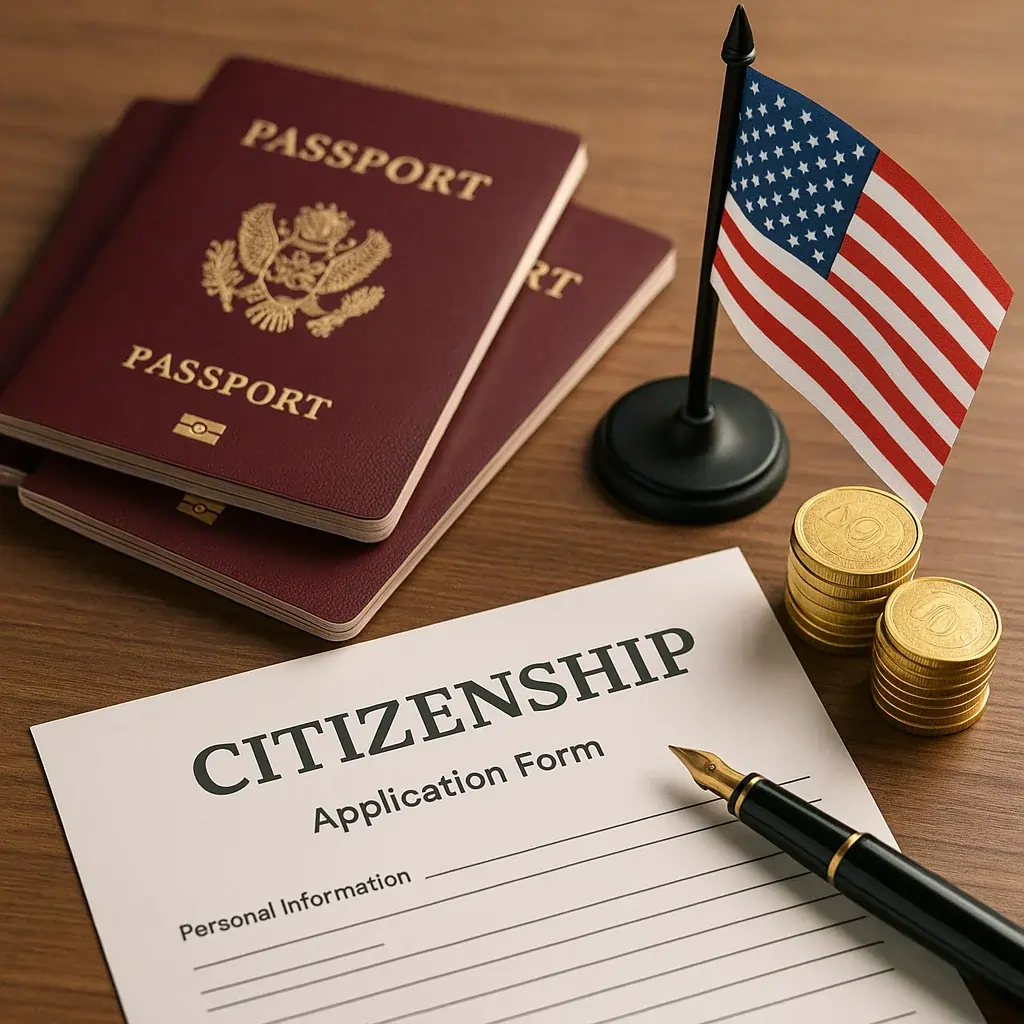

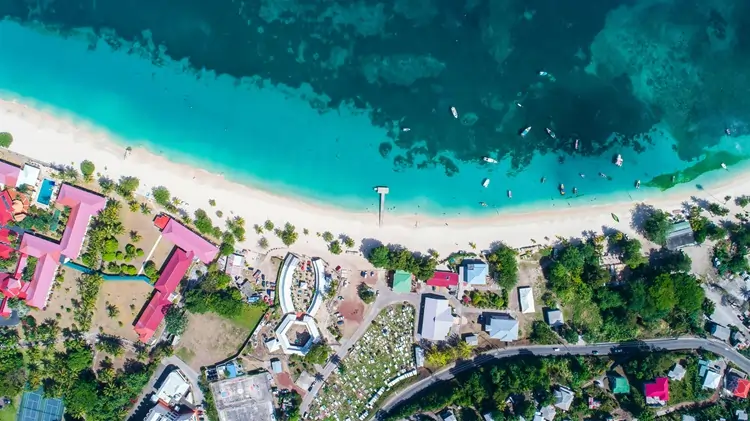


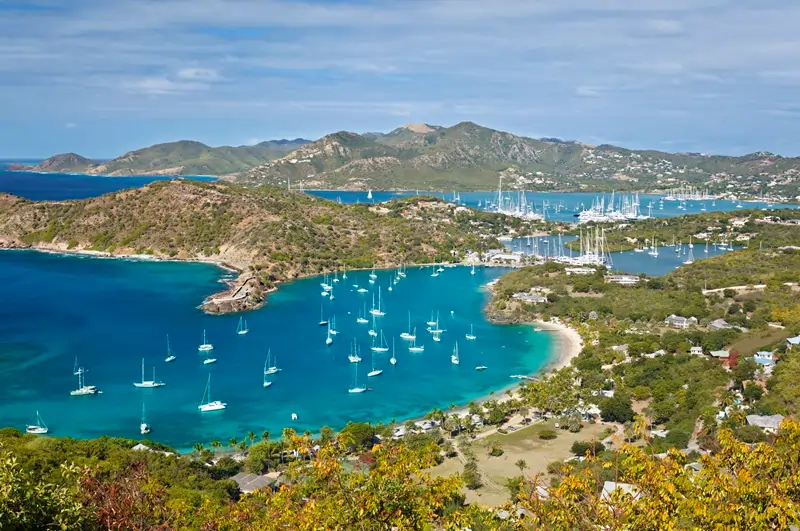
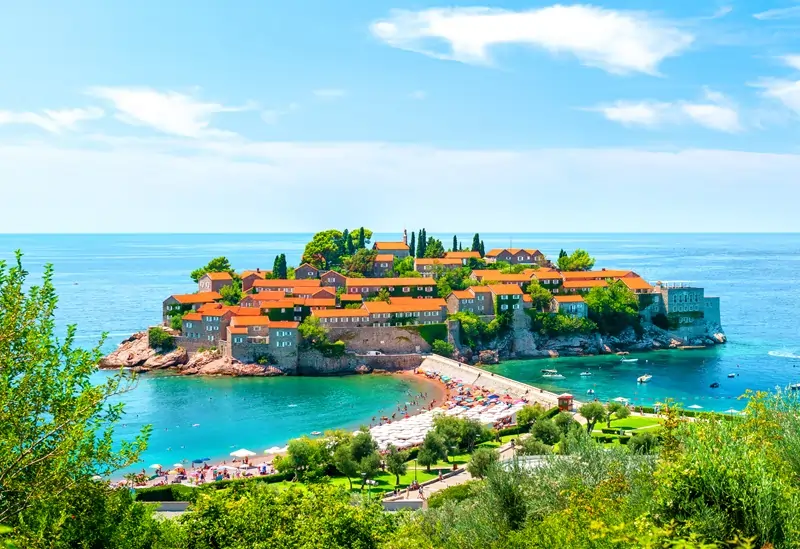

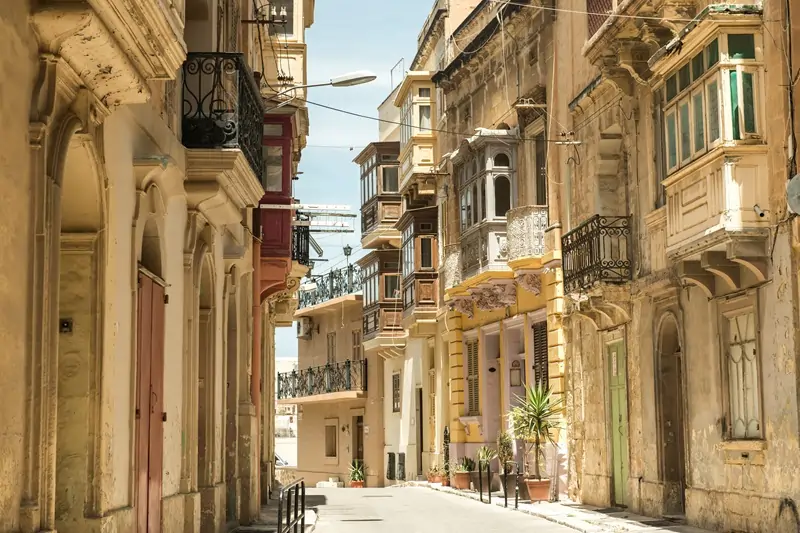



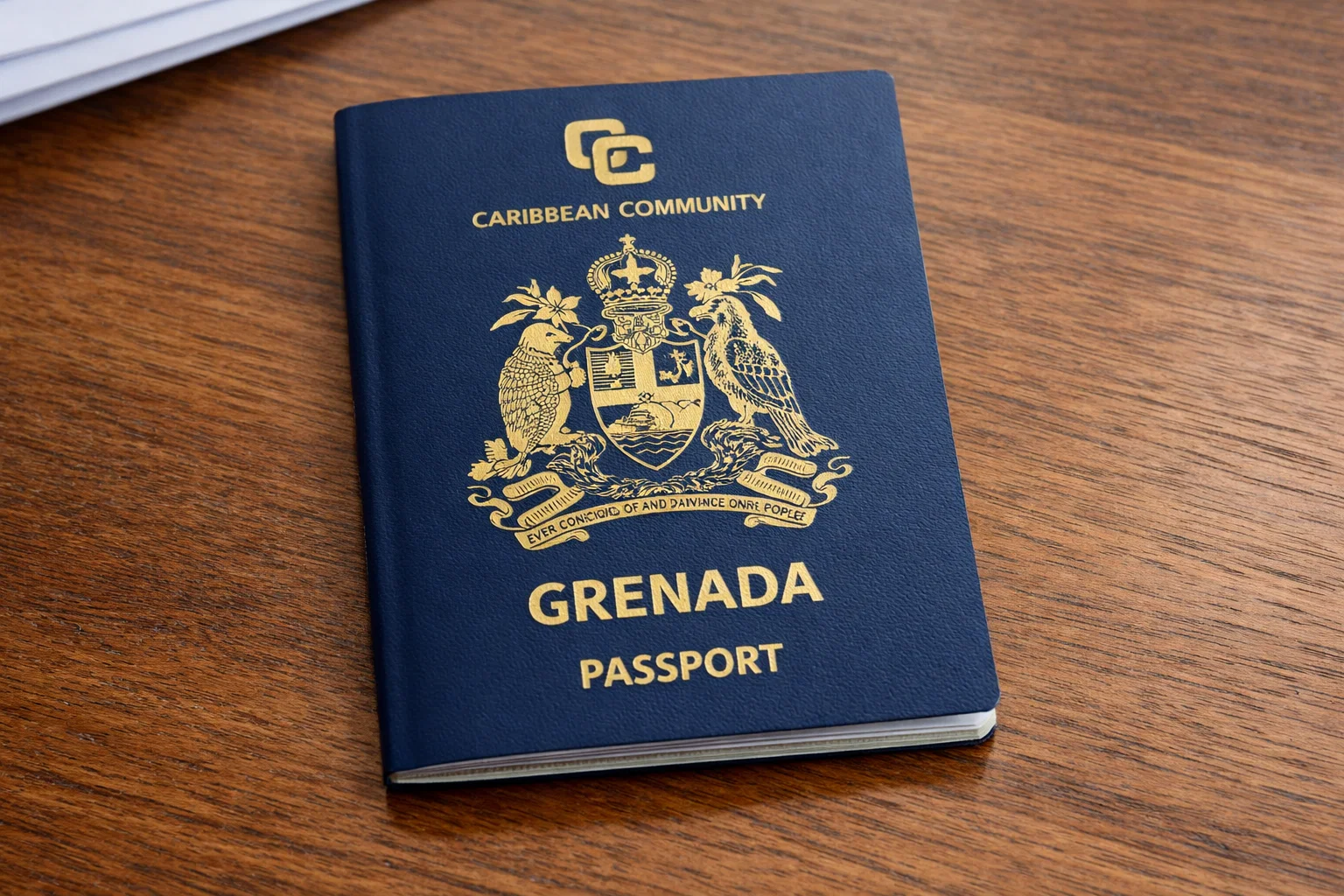


.svg)